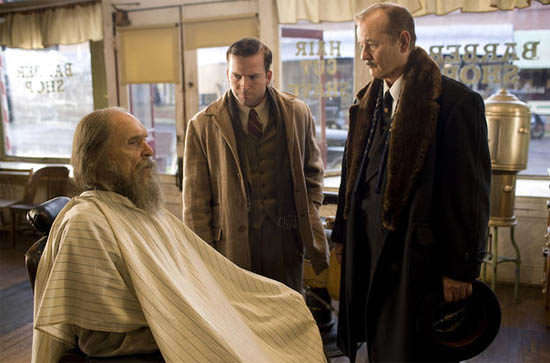Ken Russell recently appeared on The Bat Segundo Show #348. Mr. Russell is the director of such films as The Devils, Women in Love, Tommy, The Music Lovers, and Altered States. Beginning today, Russell’s films will be playing at the Film Society of Lincoln Center for one week (many of which are unavailable on video), where Russell himself will be appearing each evening. Considerable thanks to Elize Russell and Shade Rupe for their invaluable assistance.
Listen: Play in new window | Download
Condition of Mr. Segundo: Wrestling nude with 83-year-old directors.
Guest: Ken Russell
Subjects Discussed: [List forthcoming]
EXCERPT FROM SHOW:
Correspondent: You got into a fight with Alexander Walker, a man who, by the way, you’ve outlived. Other critics have called your films monstrously indecent. Walker was not the first one. So why did you hit tap him on the head, or beat him on the head, with a newspaper. I’m curious. Do you remember what was going on in your mind at the time? Or did you finally have enough of all these critics who were needlessly shitting upon what I think is a remarkable output?
Russell: Well, I guess I got tired of him putting me down. When he said, “You change things. We actually see Oliver Reed’s testicles crushed.” And I said, “Excuse me. That’s in your mind.” We don’t see his testicles crushed. Because they weren’t crushed. Only in your dirty little mind, you pig. And so he took exception to that. So I hit him over the head with his own review. Which happened to be a tissue of lies from start to finish. So that was a reason.
Correspondent: One of the few filmmakers to really get pugilistic about your critics there.
Russell: Yeah, well, he shouldn’t have said that. I mean, we didn’t see Oliver Reed’s testicles crushed. He may have wished we had. But we didn’t.
Correspondent: It was really — you were sticking up more for Ollie than you were for yourself?
Russell: That’s right. Yes.
Correspondent: I’m curious about a couple of things I’ve heard. One being that Oliver Reed apparently slammed you to the kitchen floor so that you would include the nude wrestling scene in Women in Love. I’m not sure if that’s true. Wanted to run that one by you. There’s another rumor going around that Ollie and Keith Moon were so drunk on the set of Tommy that they were improvising their lines. And then there’s another one that you guys got kicked out of the resort that you were filming at because of Ollie’s behavior. First of all, I wanted to find out if these stories were true. And second of all, given that this obviously must have been a very difficult working relationship at times and I know that you Ollie again until Prisoner of Honor, what accounts for the delay between Tommy and Prisoner of Honor?
Russell: Well, the delay between the two films was simply down to the fact of availability. Oliver Reed was only available at certain times and he wasn’t available. In Prisoner of Honor, that was why I didn’t use him before.
Elize Russell: You got along with him well.
Russell: Yeah, I got along with him very well. He…
Elize Russell: He called him Jesus.
Correspondent: He called you Jesus?
Russell: Yes. That wasn’t a compliment.
Correspondent: (laughs) So a little tempestuous there.
Russell: (laughs) Yeah.
Elize Russell: But he did throw you to the floor and you said that he convinced you to do the scene.
Russell: Oh yes. Yes, he did. I wasn’t going to do the nude wrestling scene. Because I couldn’t think of a way to do it. Because nude wrestling was frowned upon in British cinema.
Correspondent: In more ways than one.
Russell: In more ways than one, yes. So finally, he agreed to do the nude wrestling as long as there was no nude wrestling to be seen. (laughs)
Elize Russell: And how did he convince you to do it in front of the fireplace?
Russell: Well, he dropped round to my house for supper and said, “It could be done! It was very simple to do.” And he showed me how easy it was. You just faced each other, put out your hand and shook it, and threw each other onto the ground.
Correspondent: Did he often persuade you to insert scenes along these lines? Because I’m sure it couldn’t have been limited to Women in Love.
Russell: No. It was one of his favorite methods of perusasion.
Correspondent: Throwing you to the kitchen floor? That wasn’t the only time then.
Russell: Oh no.
Elize Russell: There was a sword fight.
Correspondent: Aha!
Elize Russell: But you won that one by mistake and closed your eyes.
Russell: Yeah.
The Bat Segundo Show #348: Ken Russell (Download MP3)












